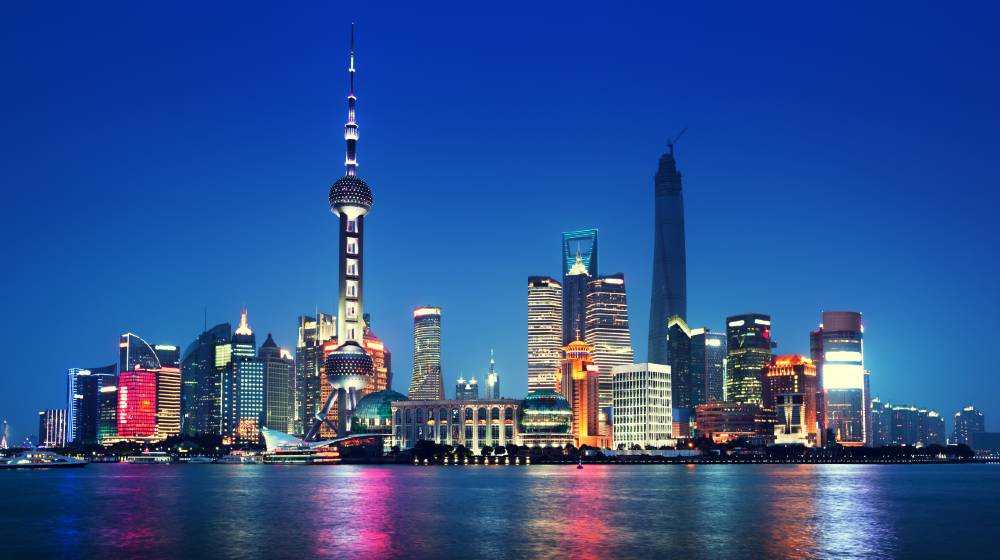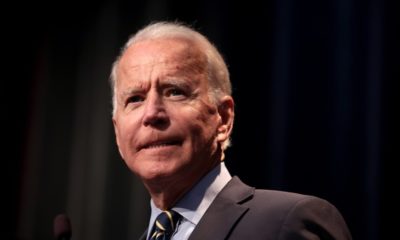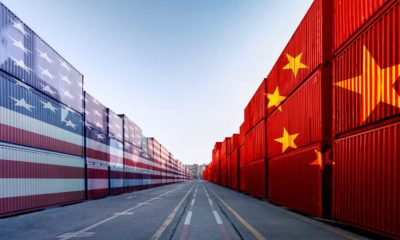Economy
China Launches 6-Month Intensive Campaign

China will engage in a concerted effort over the next six months to police the technology sector over improper antitrust and consumer protection practices, government officials said yesterday.
RELATED: Xi Jinping Warns Other Countries Not To Try To Stop China
China Launches 6-Month Intensive Campaign to Set Big Tech Straight
The industry and information technology ministry held a meeting that officially kicked off the action plan to collect information on corporate misdeeds, list specific problem areas and hold offenders legally responsible.
Technology companies will be told to launch internal probes in order to correct practices that violate the law and other directives. The move follows the wide-ranging investigation of Didi Global initiated shortly after the ride-hailing leader was listed on the New York Stock Exchange.
The Chinese government appears to be expanding the regulatory backlash against the larger domestic tech industry as a whole. The six-month crackdown will focus on four areas: adherence to the anti-monopoly law, protecting users, safeguarding data, and obtaining official authorization to operate.
For example, tech companies will no longer be allowed to maintain an anti-competitive advantage by blocking links to non-affiliated websites. In the interest of consumer protection, they will be barred from deceptively directing users to sponsored sites through the use of pop-ups with false “close” windows.
Data protection will be enforced by having tech organizations encrypt users’ private information and by requiring consent before transferring data to a third party. Authorities will also crackdown on so-called black broadband networks that operate without the government’s permission.
The IT ministry held a teleconference on Friday marking the launch of the six-month “rectification” program, according to yesterday’s announcement. This is part of the ongoing effort by President Xi Jinping’s government to tighten its grip on the tech industry.
Didi debuted on Wall Street at the end of June, raising US$4.4 billion in its initial public offering. Days later, China’s Cybersecurity Review Office announced a cybersecurity investigation into the company.
Beijing later ordered the ride-hailer’s consumer apps to be removed from Chinese app stores, and the company was blocked from signing new users. A team including members from seven national regulators was dispatched for an on-site raid.
Elsewhere, authorities this month slapped fines on a slew of tech companies for embarking on unauthorized acquisitions. E-commerce leader Alibaba Group Holding, for one, was punished for failing to submit applications for past share purchases.
That same month, the State Administration for Market Regulation, the antitrust watchdog, blocked chat and gaming giant Tencent Holdings from merging two gameplay streaming sites under its umbrella.
The agency later barred Tencent from engaging in exclusive music copyright agreements with upstream owners and ordered existing agreements dissolved. With the frictions between the US and China intensifying in the high-tech sector, Beijing has kept an eye on data leaks into the US.
The new Data Security Law, which goes into effect in September, will go hand-in-hand with other mandates to safeguard the country’s internet security.
China had previously relied on its “great firewall”, which monitored cyberspace and prevented services from Google and other US companies from being adopted on the mainland.
This protectionism gave Chinese startups room to thrive, but now the country’s top leadership appears to be turning the regulatory hammer on homegrown tech conglomerates that have grown too large for comfort.
You Might Also Like:
- The US Housing Boom Is Now Officially Over
- Tesla CEO Elon Musk Chews Out Apple During Earnings Call
- 8 Simple Ways To Save Money
Keep up to date with the latest finance news by following us on Facebook and Instagram.
Article Source: freemalaysiatoday.com
















1 Comment
Why do we let China dictate to us. I know Big Tech is a problem but we should take care of it without any more interferance from China.
We should insist that Congress and the Senate resolve the problem for us.